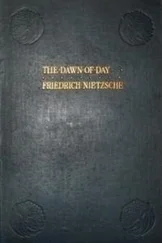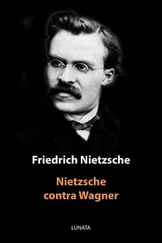Фридрих Ницше - The Case Of Wagner, Nietzsche Contra Wagner, and Selected Aphorisms.
Здесь есть возможность читать онлайн «Фридрих Ницше - The Case Of Wagner, Nietzsche Contra Wagner, and Selected Aphorisms.» весь текст электронной книги совершенно бесплатно (целиком полную версию без сокращений). В некоторых случаях можно слушать аудио, скачать через торрент в формате fb2 и присутствует краткое содержание. Год выпуска: 2014, Издательство: epubBooks Classics, Жанр: Публицистика, Критика, на английском языке. Описание произведения, (предисловие) а так же отзывы посетителей доступны на портале библиотеки ЛибКат.
- Название:The Case Of Wagner, Nietzsche Contra Wagner, and Selected Aphorisms.
- Автор:
- Издательство:epubBooks Classics
- Жанр:
- Год:2014
- ISBN:нет данных
- Рейтинг книги:4 / 5. Голосов: 1
-
Избранное:Добавить в избранное
- Отзывы:
-
Ваша оценка:
- 80
- 1
- 2
- 3
- 4
- 5
The Case Of Wagner, Nietzsche Contra Wagner, and Selected Aphorisms.: краткое содержание, описание и аннотация
Предлагаем к чтению аннотацию, описание, краткое содержание или предисловие (зависит от того, что написал сам автор книги «The Case Of Wagner, Nietzsche Contra Wagner, and Selected Aphorisms.»). Если вы не нашли необходимую информацию о книге — напишите в комментариях, мы постараемся отыскать её.
The Case Of Wagner, Nietzsche Contra Wagner, and Selected Aphorisms. — читать онлайн бесплатно полную книгу (весь текст) целиком
Ниже представлен текст книги, разбитый по страницам. Система сохранения места последней прочитанной страницы, позволяет с удобством читать онлайн бесплатно книгу «The Case Of Wagner, Nietzsche Contra Wagner, and Selected Aphorisms.», без необходимости каждый раз заново искать на чём Вы остановились. Поставьте закладку, и сможете в любой момент перейти на страницу, на которой закончили чтение.
Интервал:
Закладка:
"Yes, it is I who have killed her, I—my adored Carmen!"
—Such a conception of love (the only one worthy of a philosopher) is rare: it distinguishes one work of art from among a thousand others. For, as a rule, artists are no better than the rest of the world, they are even worse—they misunderstand love. Even Wagner misunderstood it. They imagine that they are selfless in it because they appear to be seeking the advantage of another creature often to their own disadvantage. But in return they want to possess the other creature…. Even God is no exception to this rule, he is very far from thinking "What does it matter to thee whether I love thee or not?"—He becomes terrible if he is not loved in return " L'amour —and with this principle one carries one's point against Gods and men— est de tous les sentiments le plus égoiste, et par conséquent, lorsqu'il est blessé, le moins généreux " (B. Constant).
3.
Perhaps you are beginning to perceive how very much this music improves me?— Il faut méditerraniser la musique. and I have my reasons for this principle ("Beyond Good and Evil," pp. 216 et seq. ) The return to Nature, health, good spirits, youth, virtue !—And yet I was one of the most corrupted Wagnerites…. I was able to take Wagner seriously. Oh, this old magician! what tricks has he not played upon us! The first thing his art places in our hands is a magnifying glass: we look through it, and we no longer trust our own eyes—Everything grows bigger, even Wagner grows bigger …. What a clever rattlesnake. Throughout his life he rattled "resignation," "loyalty," and "purity" about our ears, and he retired from the corrupt world with a song of praise to chastity!—And we believed it all….
—But you will not listen to me? You prefer even the problem of Wagner to that of Bizet? But neither do I underrate it; it has its charm. The problem of salvation is even a venerable problem. Wagner pondered over nothing so deeply as over salvation: his opera is the opera of salvation. Someone always wants to be saved in his operas,—now it is a youth; anon it is a maid,—this is his problem —And how lavishly he varies his leitmotif ! What rare and melancholy modulations! If it were not for Wagner, who would teach us that innocence has a preference for saving interesting sinners? (the case in "Tannhäuser"). Or that even the eternal Jew gets saved and settled down when he marries? (the case in the "Flying Dutchman"). Or that corrupted old females prefer to be saved by chaste young men? (the case of Kundry). Or that young hysterics like to be saved by their doctor? (the case in "Lohengrin"). Or that beautiful girls most love to be saved by a knight who also happens to be a Wagnerite? (the case in the "Mastersingers"). Or that even married women also like to be saved by a knight? (the case of Isolde). Or that the venerable Almighty, after having compromised himself morally in all manner of ways, is at last delivered by a free spirit and an immoralist? (the case in the "Ring"). Admire, more especially this last piece of wisdom! Do you understand it? I—take good care not to understand it…. That it is possible to draw yet other lessons from the works above mentioned,—I am much more ready to prove than to dispute. That one may be driven by a Wagnerian ballet to desperation— and to virtue! (once again the case in "Tannhäuser"). That not going to bed at the right time may be followed by the worst consequences (once again the case of "Lohengrin").—That one can never be too sure of the spouse one actually marries (for the third time, the case of "Lohengrin"). "Tristan and Isolde" glorifies the perfect husband who, in a certain case, can ask only one question: "But why have ye not told me this before? Nothing could be simpler than that!" Reply:
"That I cannot tell thee. And what thou askest, That wilt thou never learn."
"Lohengrin" contains a solemn ban upon all investigation and questioning. In this way Wagner stood for the Christian concept, "Thou must and shalt believe ". It is a crime against the highest and the holiest to be scientific…. The "Flying Dutchman" preaches the sublime doctrine that woman can moor the most erratic soul, or to put it into Wagnerian terms "save" him. Here we venture to ask a question. Supposing that this were actually true, would it therefore be desirable?—What becomes of the "eternal Jew" whom a woman adores and enchains ? He simply ceases from being eternal, he marries,—that is to say, he concerns us no longer.—Transferred into the realm of reality, the danger for the artist and for the genius—and these are of course the "eternal Jews"—resides in woman: adoring women are their ruin. Scarcely any one has sufficient character not to be corrupted—"saved" when he finds himself treated as a God—he then immediately condescends to woman.—Man is a coward in the face of all that is eternally feminine, and this the girls know.—In many cases of woman's love, and perhaps precisely in the most famous ones, the love is no more than a refined form of parasitism , a making one's nest in another's soul and sometimes even in another's flesh—Ah! and how constantly at the cost of the host!
We know the fate of Goethe in old–maidish moralin–corroded Germany. He was always offensive to Germans, he found honest admirers only among Jewesses. Schiller, "noble" Schiller, who cried flowery words into their ears,—he was a man after their own heart. What did they reproach Goethe with?—with the Mount of Venus, and with having composed certain Venetian epigrams. Even Klopstock preached him a moral sermon; there was a time when Herder was fond of using the word "Priapus" when he spoke of Goethe. Even "Wilhelm Meister" seemed to be only a symptom of decline, of a moral "going to the dogs". The "Menagerie of tame cattle," the worthlessness of the hero in this book, revolted Niebuhr, who finally bursts out in a plaint which Biterolf [8] A character in "Tannhäuser."— Tr .
might well have sung: "nothing so easily makes a painful impression as when a great mind despoils itself of its wings and strives for virtuosity in something greatly inferior, while it renounces more lofty aims ." But the most indignant of all was the cultured woman—all smaller courts in Germany, every kind of "Puritanism" made the sign of the cross at the sight of Goethe, at the thought of the "unclean spirit" in Goethe.—This history was what Wagner set to music. He saves Goethe, that goes without saying; but he does so in such a clever way that he also takes the side of the cultured woman. Goethe gets saved: a prayer saves him, a cultured woman draws him out of the mire .
—As to what Goethe would have thought of Wagner?—Goethe once set himself the question, "what danger hangs over all romanticists—the fate of romanticists?"—His answer was: "To choke over the rumination of moral and religious absurdities." In short: Parsifal …. The philosopher writes thereto an epilogue: Holiness —the only remaining higher value still seen by the mob or by woman, the horizon of the ideal for all those who are naturally short–sighted. To philosophers, however, this horizon, like every other, is a mere misunderstanding, a sort of slamming of the door in the face of the real beginning of their world,—their danger, their ideal, their desideratum…. In more polite language: La philosophie ne suffit pas au grand nombre. Il lui faut la sainteté….
4.
I shall once more relate the history of the "Ring". This is its proper place. It is also the history of a salvation except that in this case it is Wagner himself who is saved—Half his lifetime Wagner believed in the Revolution as only a Frenchman could have believed in it. He sought it in the runic inscriptions of myths, he thought he had found a typical revolutionary in Siegfried.—"Whence arises all the evil in this world?" Wagner asked himself. From "old contracts": he replied, as all revolutionary ideologists have done. In plain English: from customs, laws, morals, institutions, from all those things upon which the ancient world and ancient society rests. "How can one get rid of the evil in this world? How can one get rid of ancient society?" Only by declaring war against "contracts" (traditions, morality). This Siegfried does. He starts early at the game, very early—his origin itself is already a declaration of war against morality—he is the result of adultery, of incest…. Not the saga, but Wagner himself is the inventor of this radical feature, in this matter he corrected the saga…. Siegfried continues as he began: he follows only his first impulse, he flings all tradition, all respect, all fear to the winds. Whatever displeases him he strikes down. He tilts irreverently at old god–heads. His principal undertaking, however, is to emancipate woman,—"to deliver Brunnhilda."…Siegfried and Brunnhilda, the sacrament of free love, the dawn of the golden age, the twilight of the Gods of old morality— evil is got rid of …. For a long while Wagner's ship sailed happily along this course. There can be no doubt that along it Wagner sought his highest goal.—What happened? A misfortune. The ship dashed on to a reef; Wagner had run aground. The reef was Schopenhauer's philosophy; Wagner had stuck fast on a contrary view of the world. What had he set to music? Optimism? Wagner was ashamed. It was moreover an optimism for which Schopenhauer had devised an evil expression,— unscrupulous optimism. He was more than ever ashamed. He reflected for some time; his position seemed desperate…. At last a path of escape seemed gradually to open before him—what if the reef on which he had been wrecked could be interpreted as a goal, as the ulterior motive, as the actual purpose of his journey? To be wrecked here, this was also a goal:— Bene navigavi cum naufragium feci … and he translated the "Ring" into Schopenhauerian language. Everything goes wrong, everything goes to wrack and ruin, the new world is just as bad as the old one:—Nonentity, the Indian Circe beckons … Brunnhilda, who according to the old plan had to retire with a song in honour of free love, consoling the world with the hope of a socialistic Utopia in which "all will be well"; now gets something else to do. She must first study Schopenhauer. She must first versify the fourth book of "The World as Will and Idea." Wagner was saved…. Joking apart, this was a salvation. The service which Wagner owes to Schopenhauer is incalculable. It was the philosopher of decadence who allowed the artist of decadence to find himself.—
Читать дальшеИнтервал:
Закладка:
Похожие книги на «The Case Of Wagner, Nietzsche Contra Wagner, and Selected Aphorisms.»
Представляем Вашему вниманию похожие книги на «The Case Of Wagner, Nietzsche Contra Wagner, and Selected Aphorisms.» списком для выбора. Мы отобрали схожую по названию и смыслу литературу в надежде предоставить читателям больше вариантов отыскать новые, интересные, ещё непрочитанные произведения.
Обсуждение, отзывы о книге «The Case Of Wagner, Nietzsche Contra Wagner, and Selected Aphorisms.» и просто собственные мнения читателей. Оставьте ваши комментарии, напишите, что Вы думаете о произведении, его смысле или главных героях. Укажите что конкретно понравилось, а что нет, и почему Вы так считаете.











